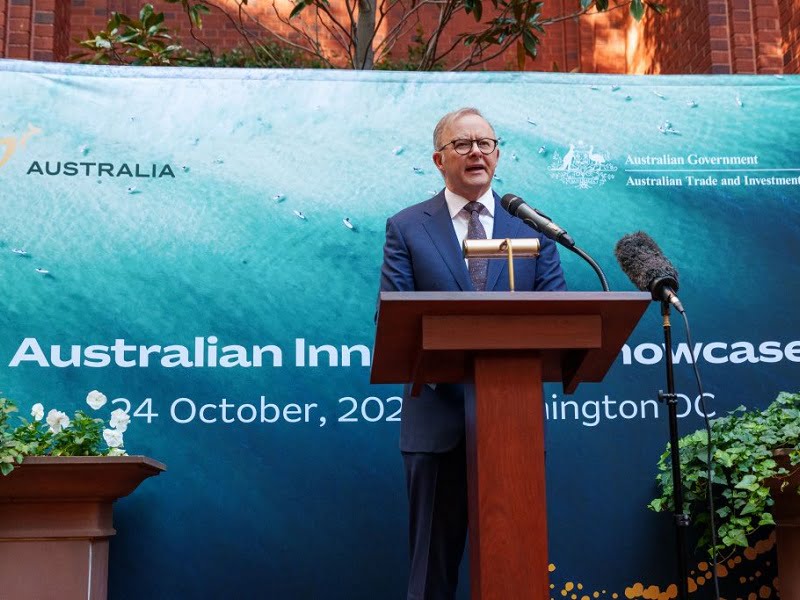Australia will provide Ukraine with $20 million worth of home-grown technology, including counter-drone systems and deployable 3D printers, as part of its latest military assistance package.
Prime Minister Anthony Albanese revealed the Australian innovation package during his trip to the United States, where he is meeting with legislators on a way forward with the trilateral AUKUS security pact.
“This contribution will provide Ukraine with some of the best capabilities in the world, while investing in Australia’s sovereign defence industry and technology sector,” Mr Albanese said on Wednesday (AEDT).

The support package includes counter-drone systems from DroneShield, deployable 3D printers from Spee-3D, ultra lightweight portable x-ray equipment from Micro-X and de-mining equipment from Minelab.
The Prime Minister did not provide a breakdown on the orders for each of capabilities from the companies, which are based in South Australia’s Tonsley Innovation Precinct, New South Wales, and Victoria.
The new support brings the government’s assistance to around $910 million since the full-scale Russian invasion of Ukraine began in February 2022.
Previous support has included 120 Bushmaster armored vehicles, which were supplied at the request of Ukrainian President Volodymyr Zelenskyy, as well as 70 other military vehicles and ammunition.
Mr Albanese thanked the defence industry partners for the equipment, which he described as “some of the best capabilities in the world” during a speech at the Australian Innovation Showcase in Washington.
“Innovation strengthens our capability in defence – and it strengthens our multilateral and regional relationships too. “It creates jobs, drives economic growth and lifts people out of poverty. It helps deepen and diversify trading relationships,” he said.
“And in clean energy, it’s innovation and technology that means some of the fastest-growing economies in the world can decarbonise and industrialise, at the same time.
“At a moment when our world faces profound challenges – your work is central to finding the solutions. And at a time of economic transformation – your work is vital to seizing these opportunities.”
Mr Albanese is set to meet US President Joe Biden later this week to discuss AUKUS, including necessary legislative reforms for AUKUS technology sharing that have stalled in Congress.
The Australian government is also reportedly drafting reciprocal legislation that it plans to introduce before the end of the year to allow for the exchange of military technology with the US.
Lawmakers in the US approved draft legislation incorporating similar reforms earlier this year, but they are yet to progress. US export controls, namely the International Traffic in Arms Regulations (ITAR) regime, are considered a significant barrier to AUKUS.
An independent review of Australian export controls laws — which regulate the supply of military and ‘dual-use’ technologies overseas, including through the Defence and Strategic Goods List — is also underway.
Do you know more? Contact James Riley via Email.

